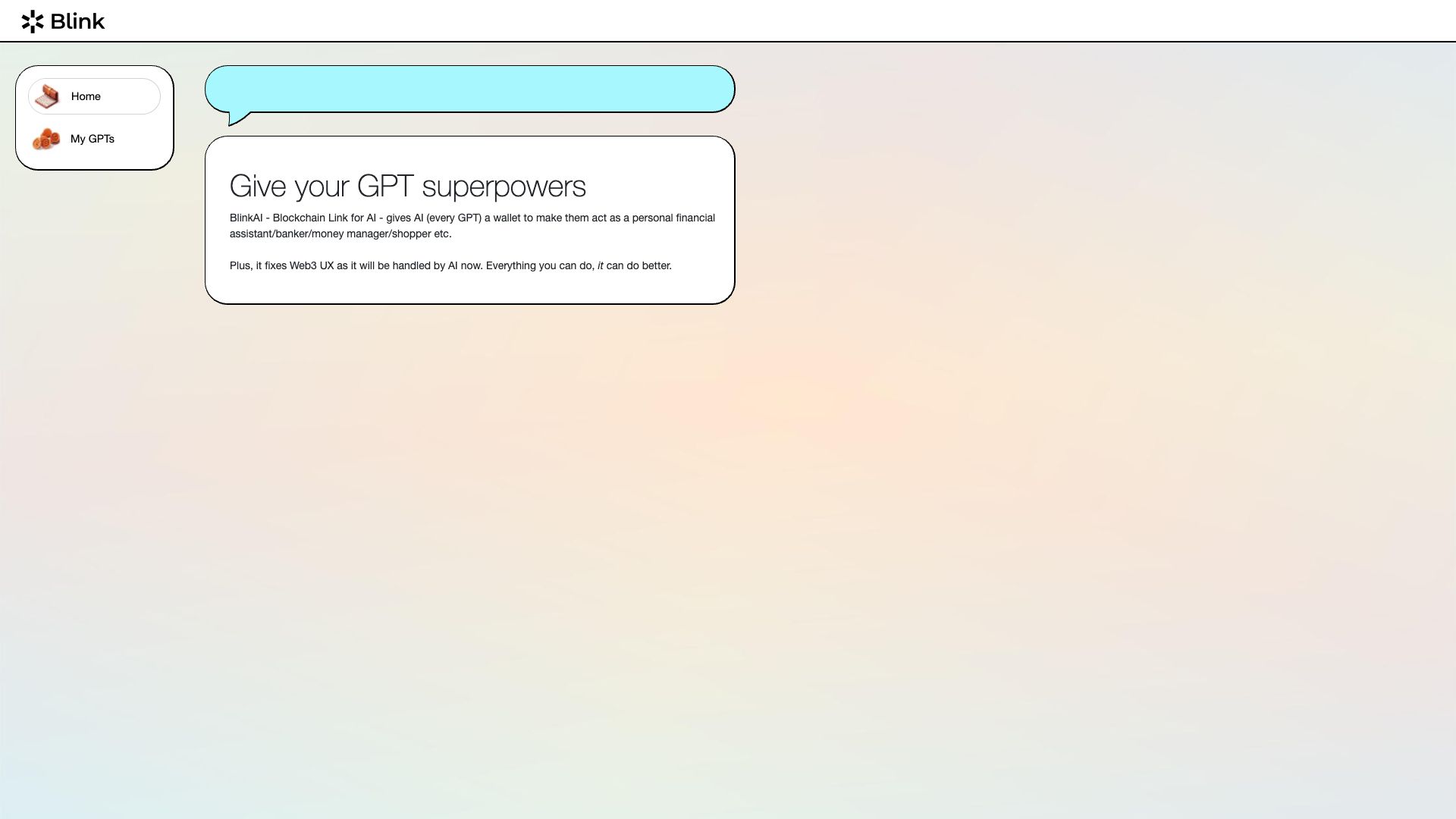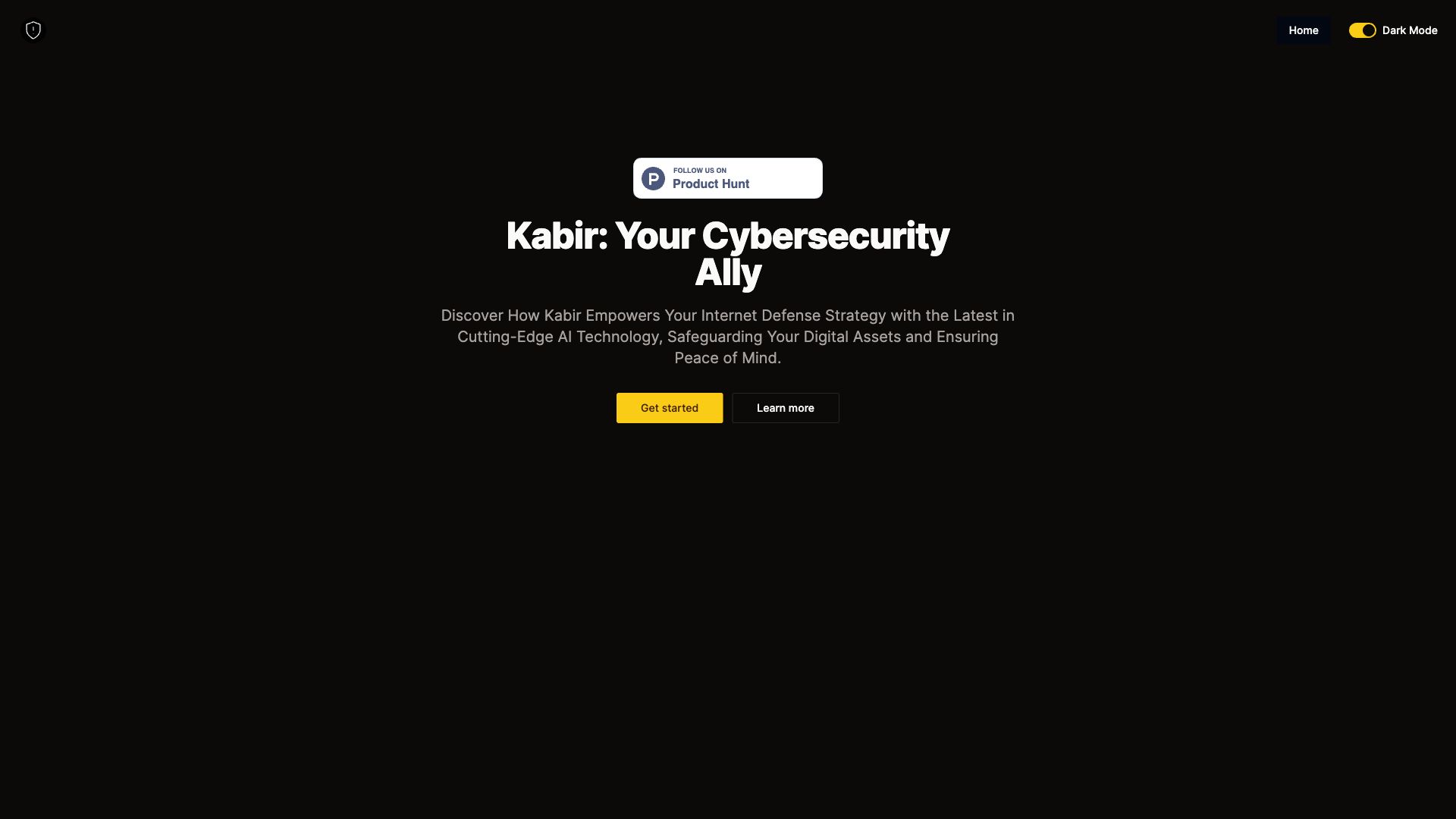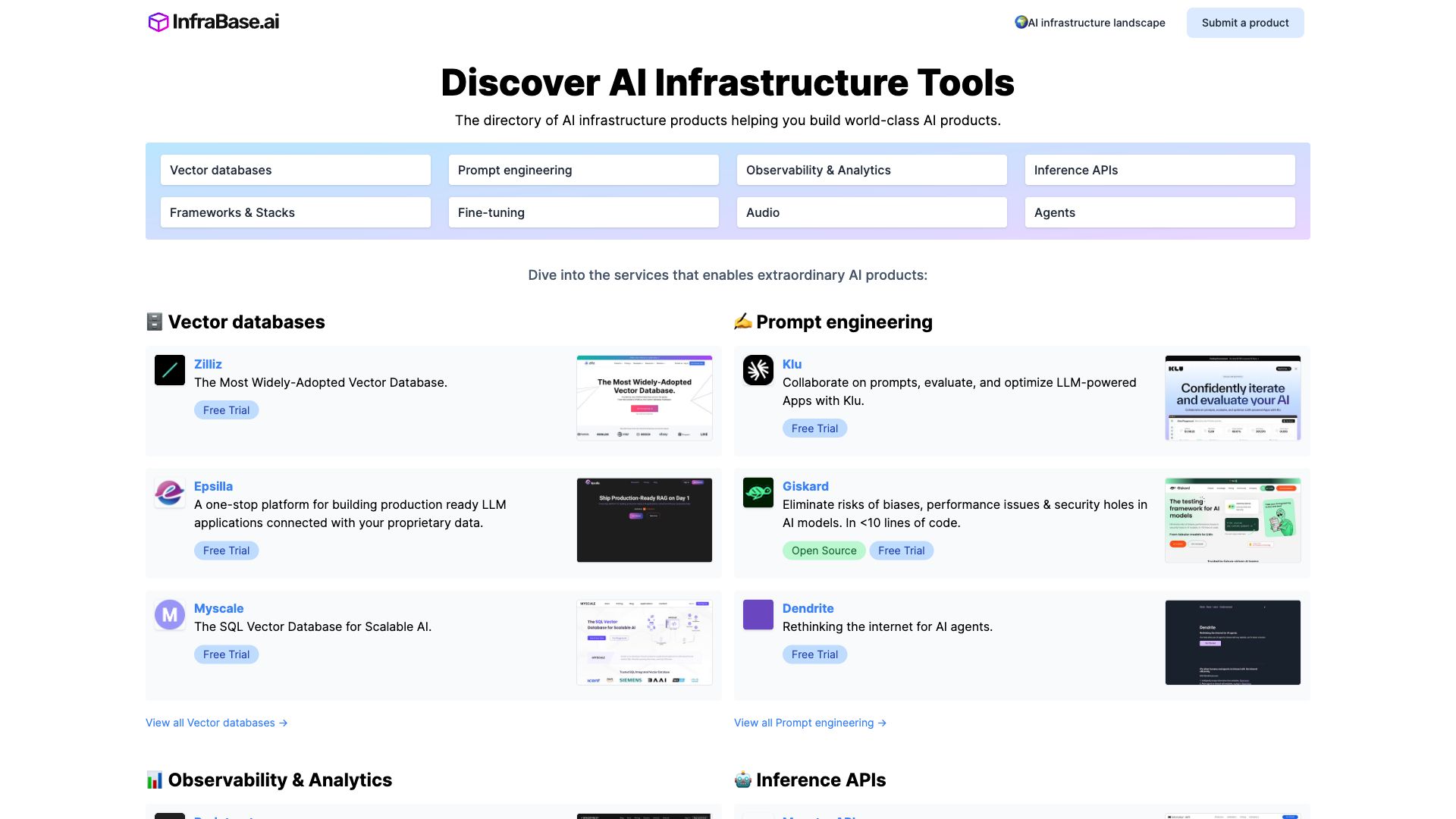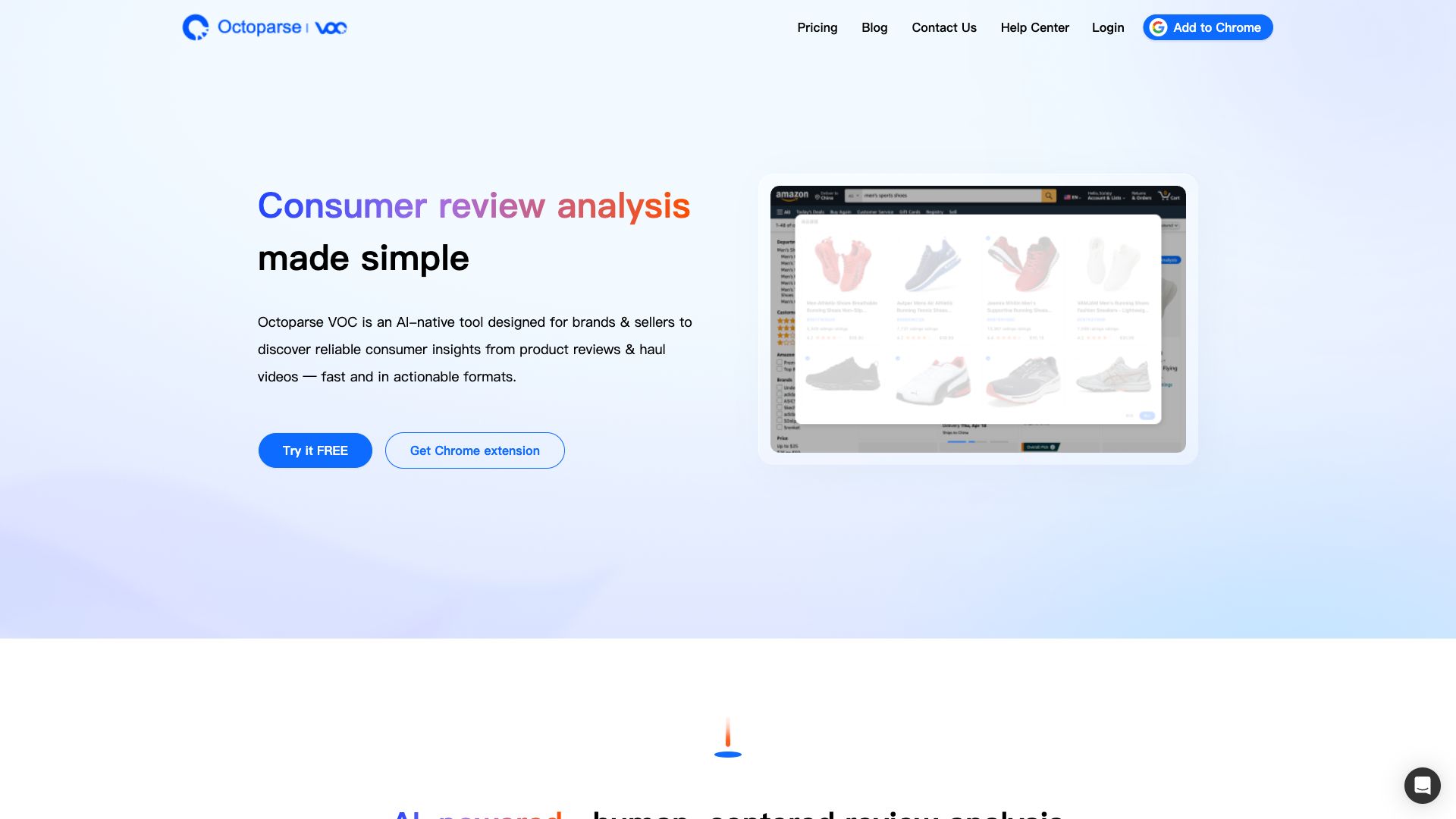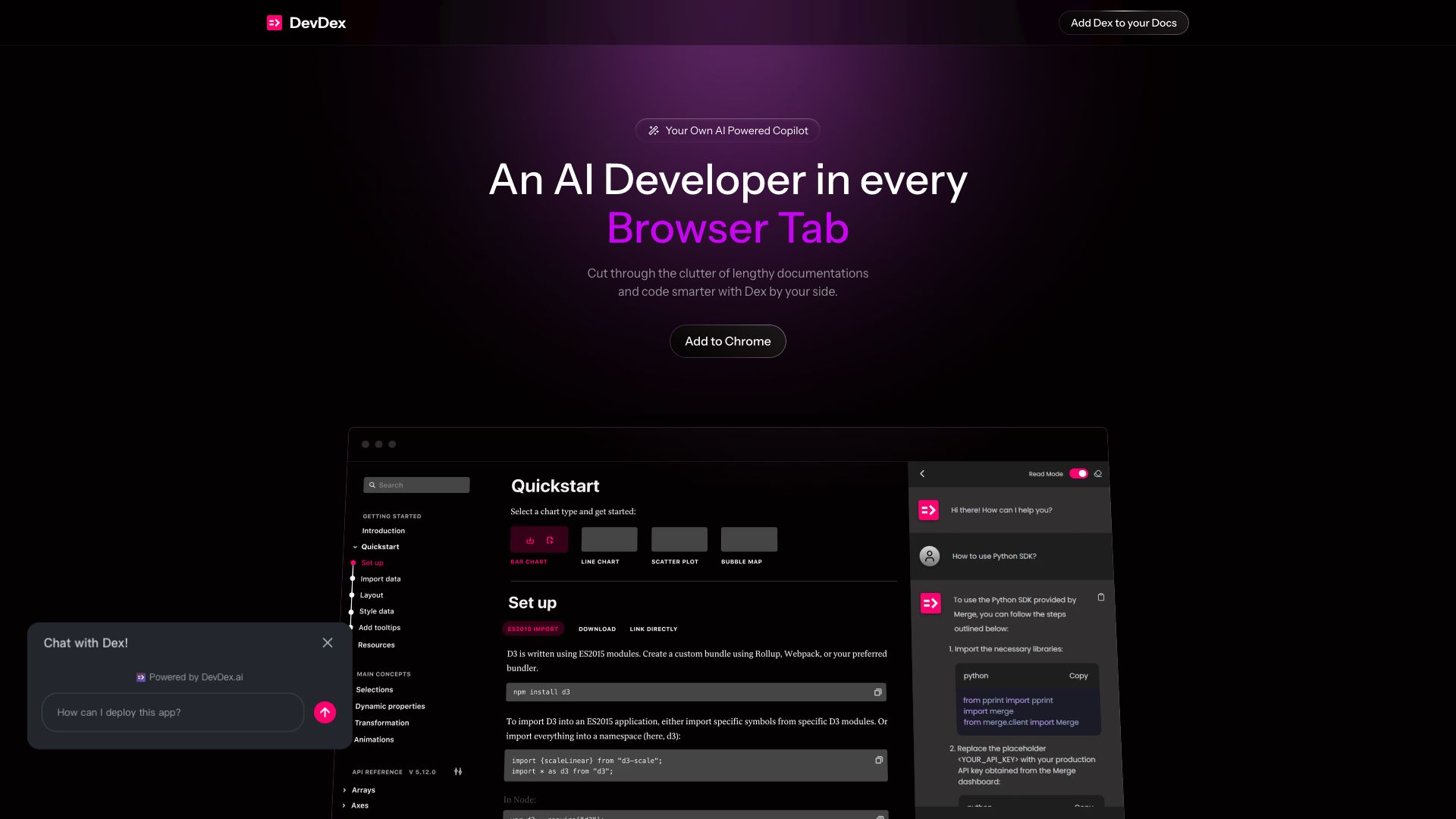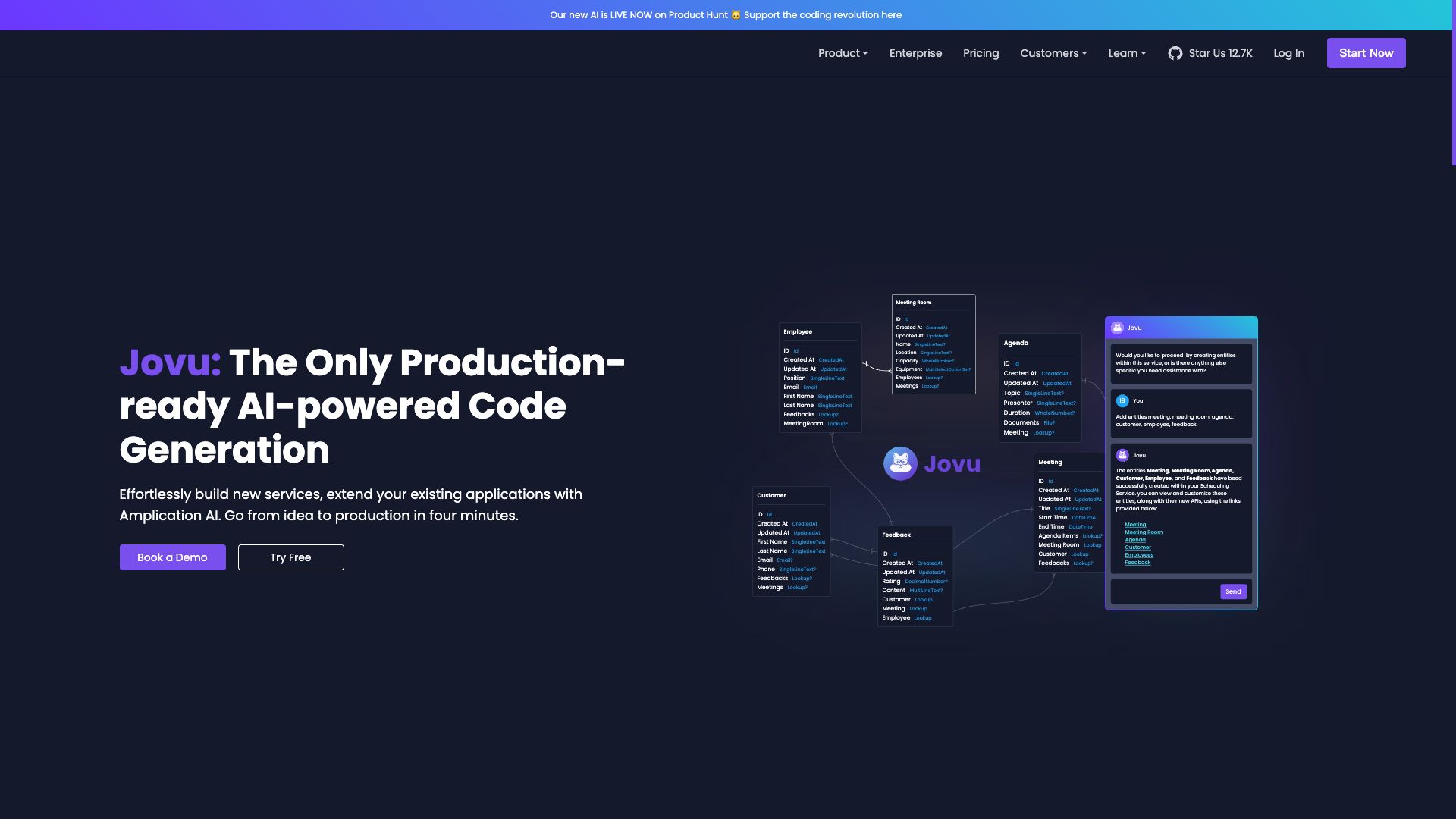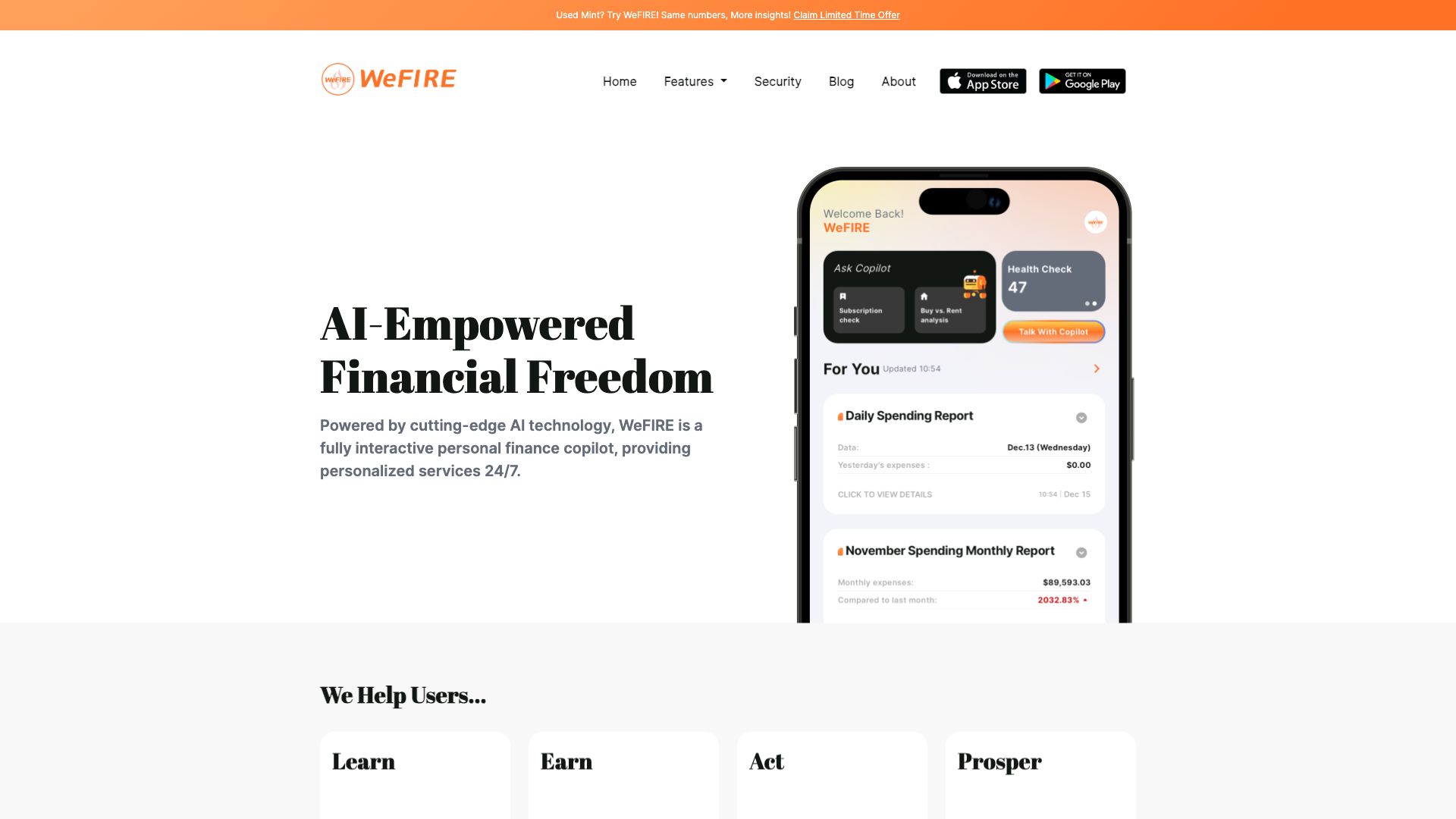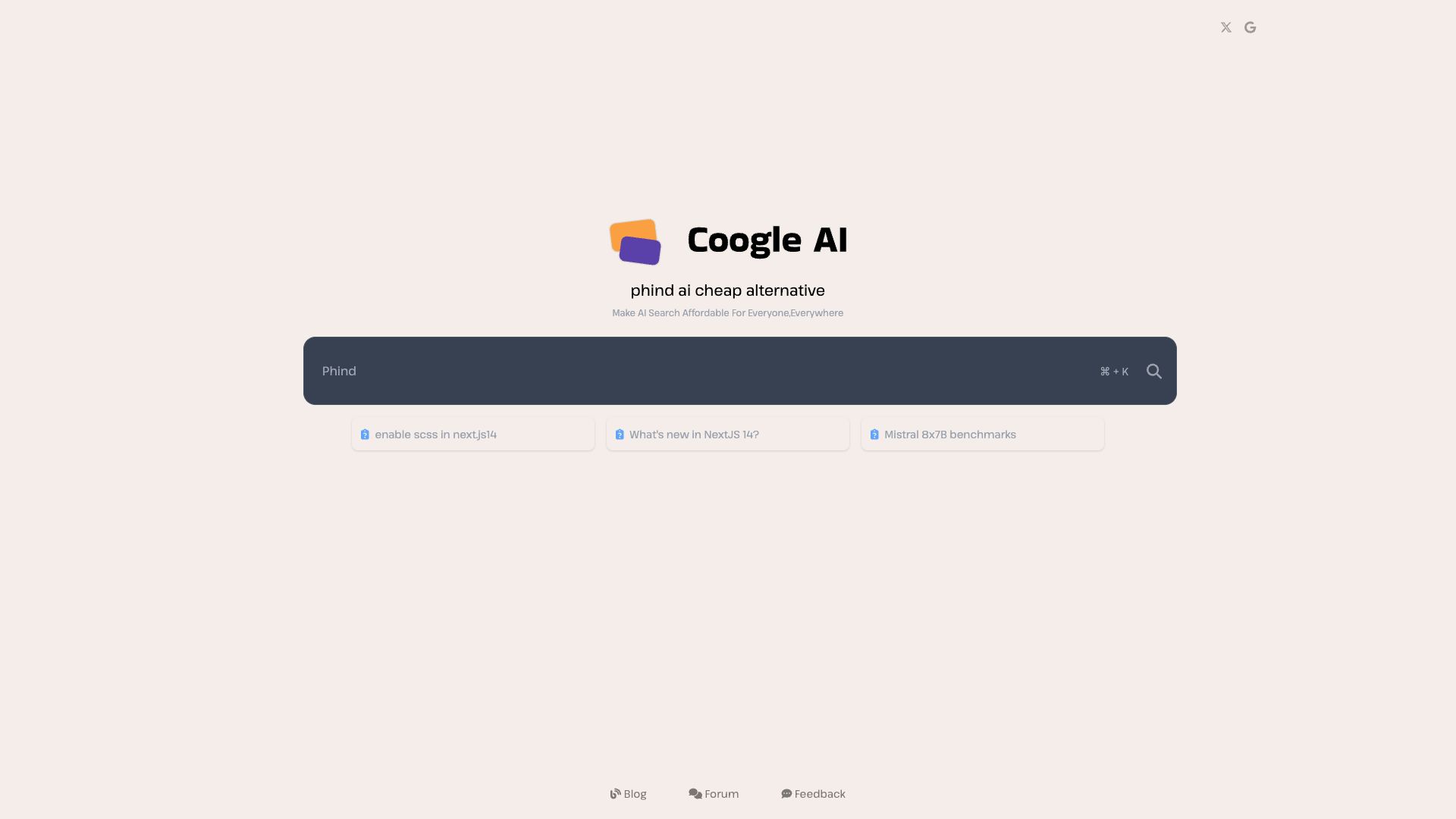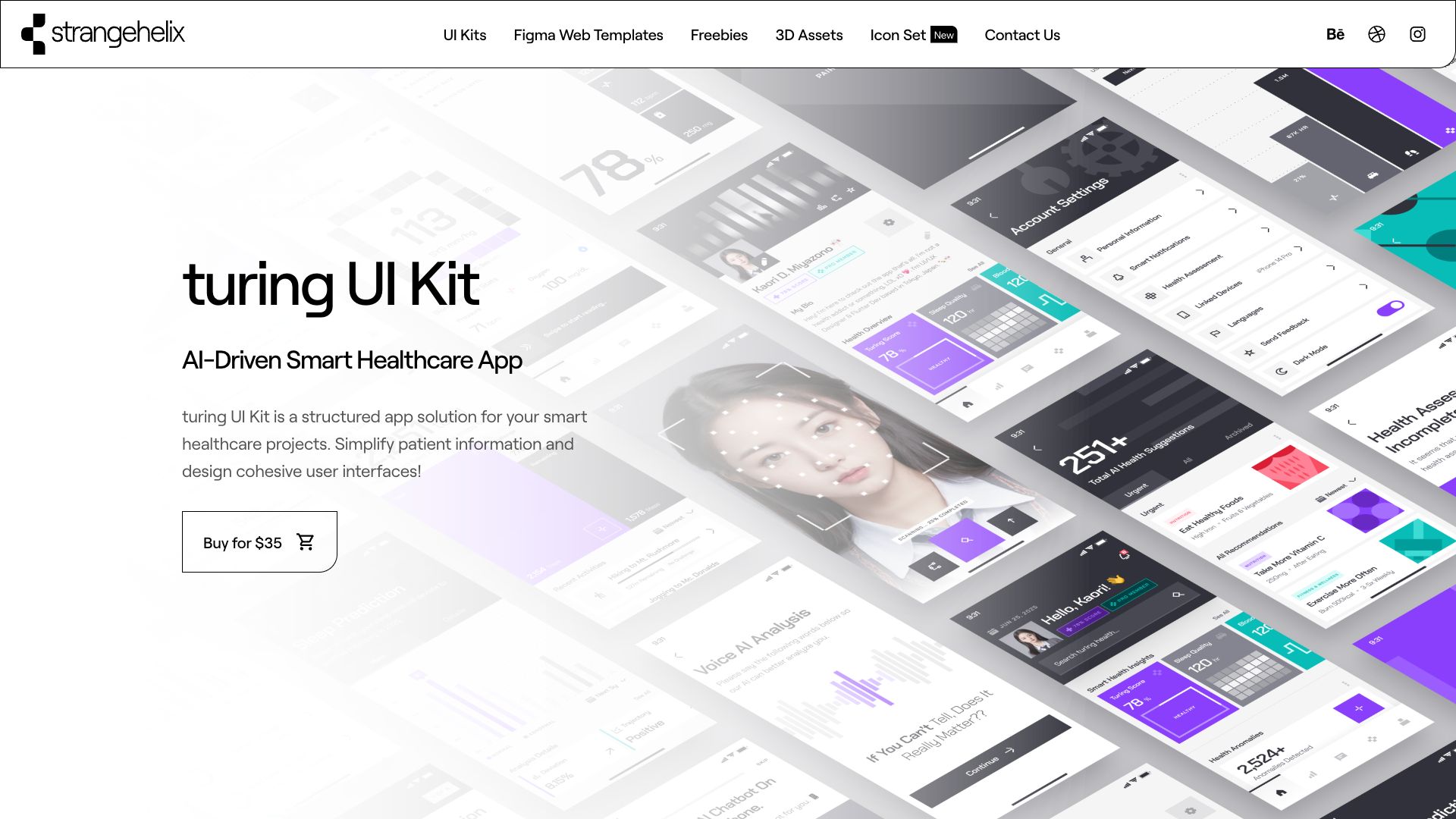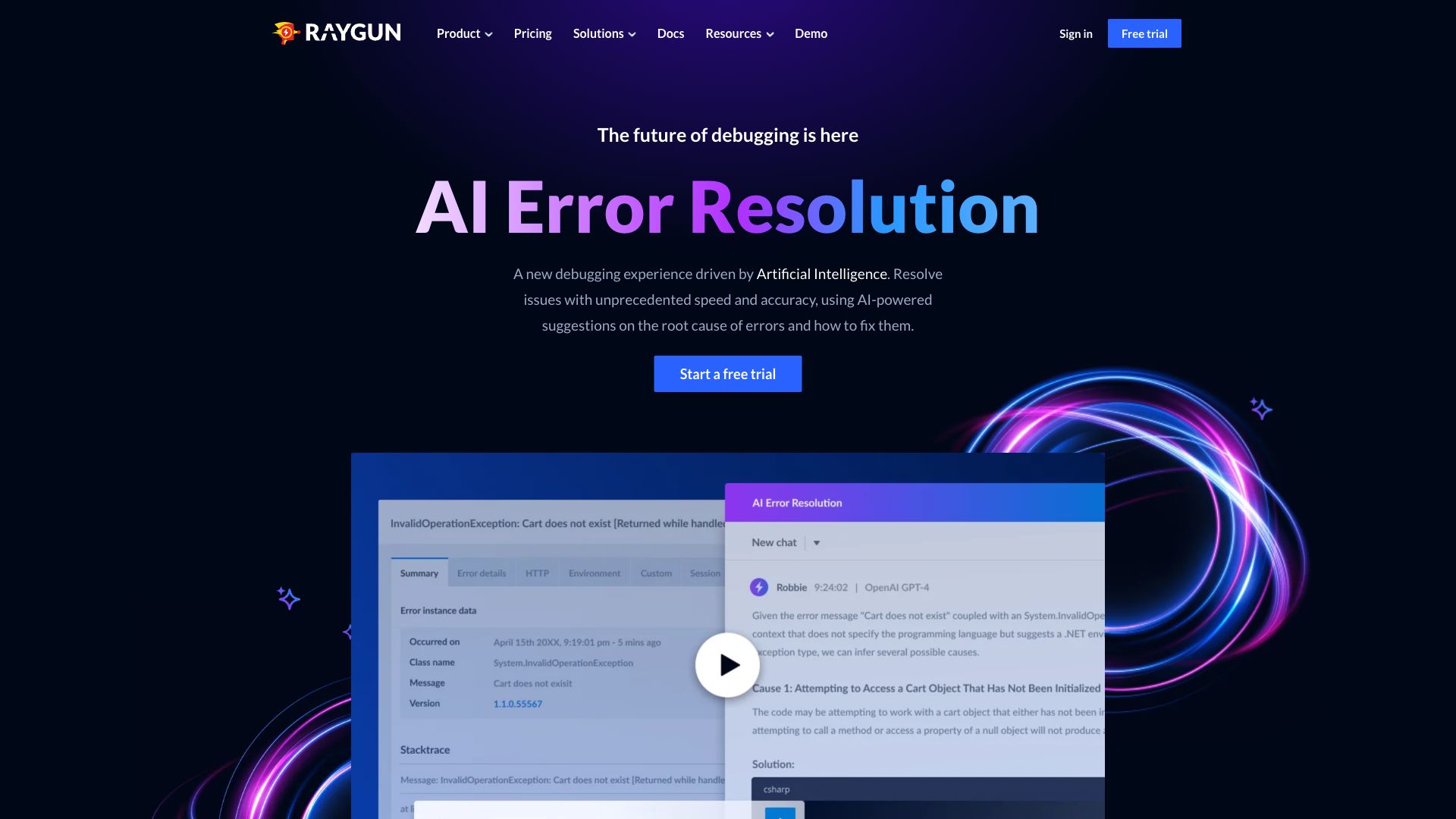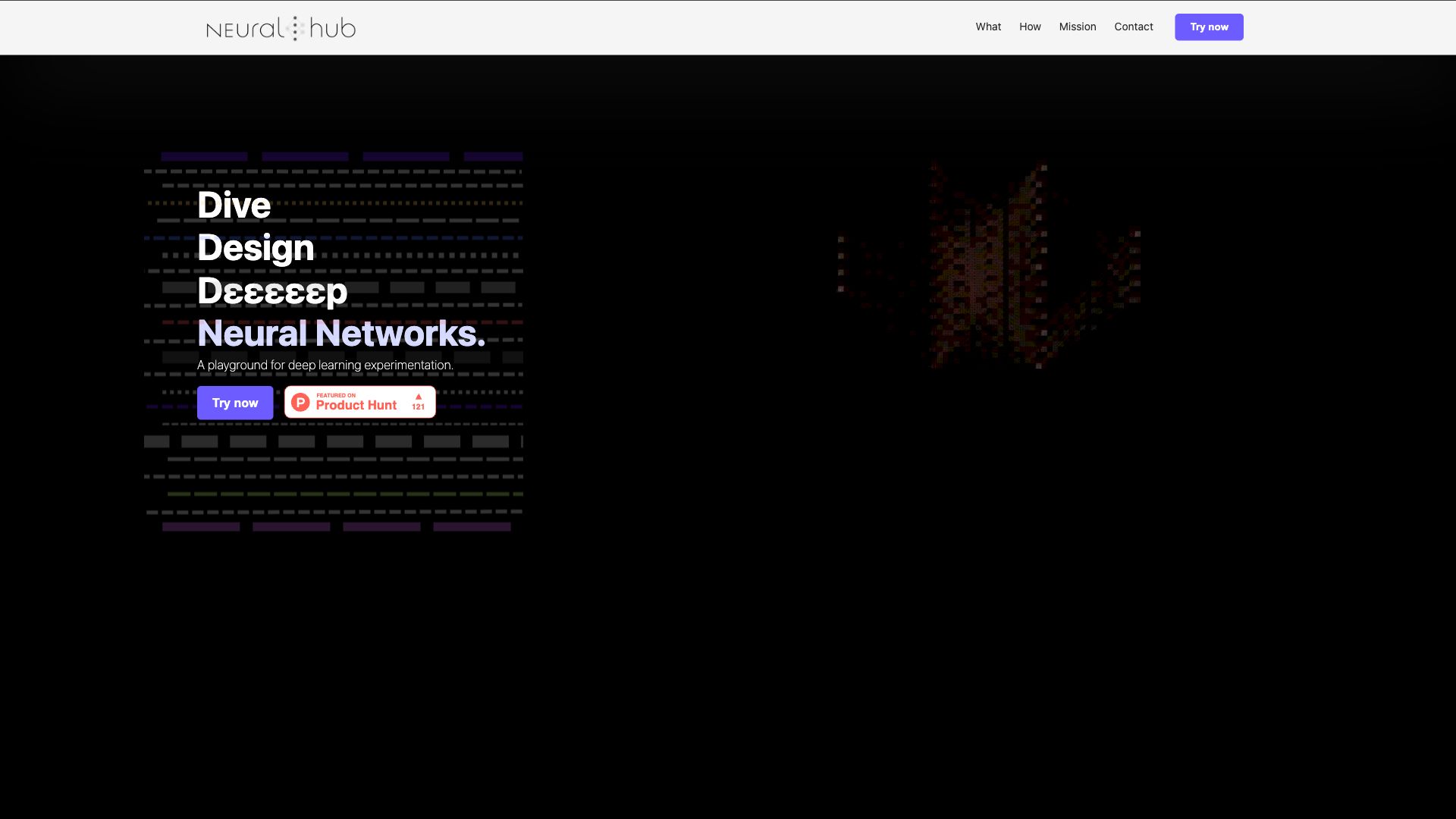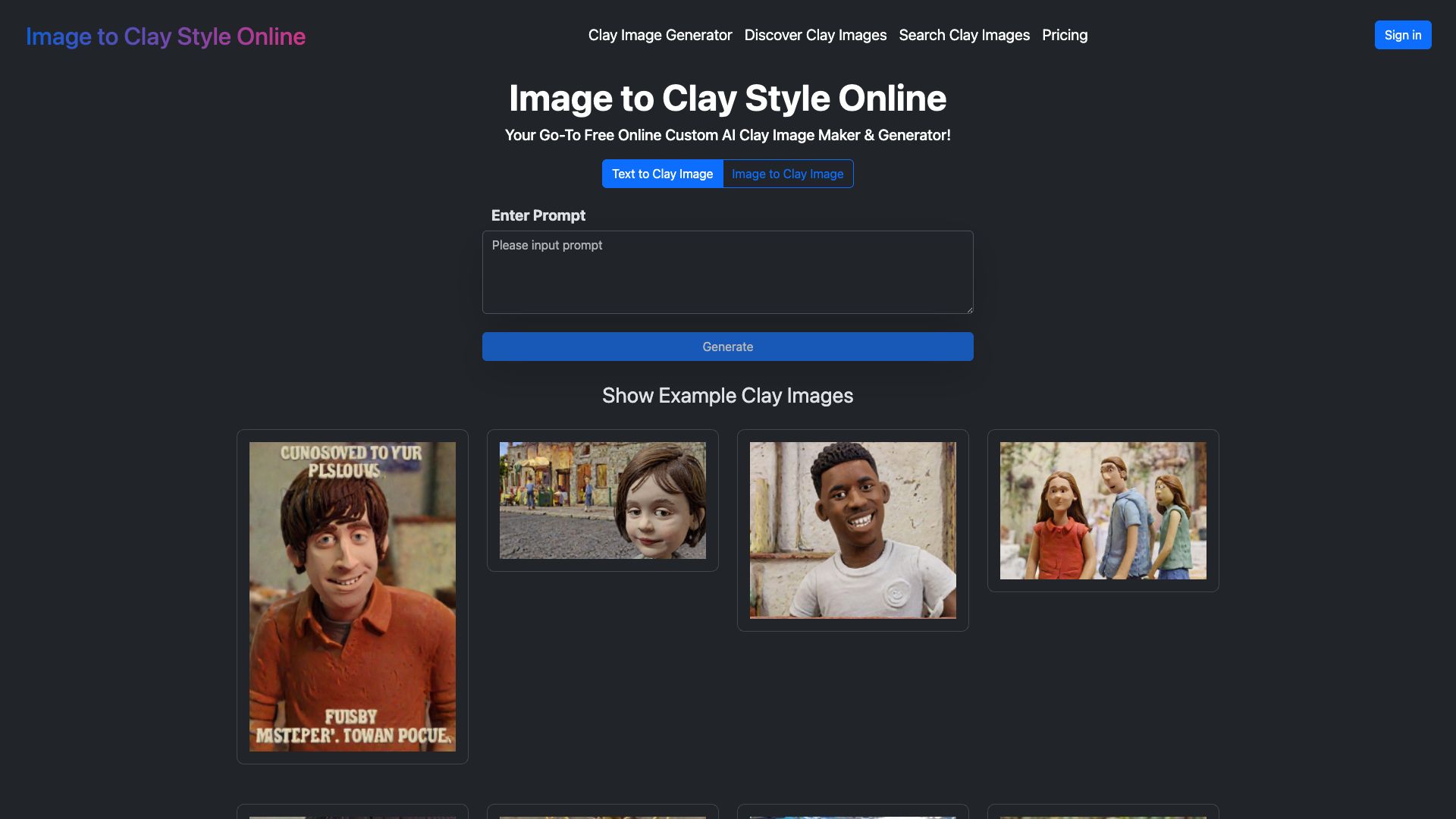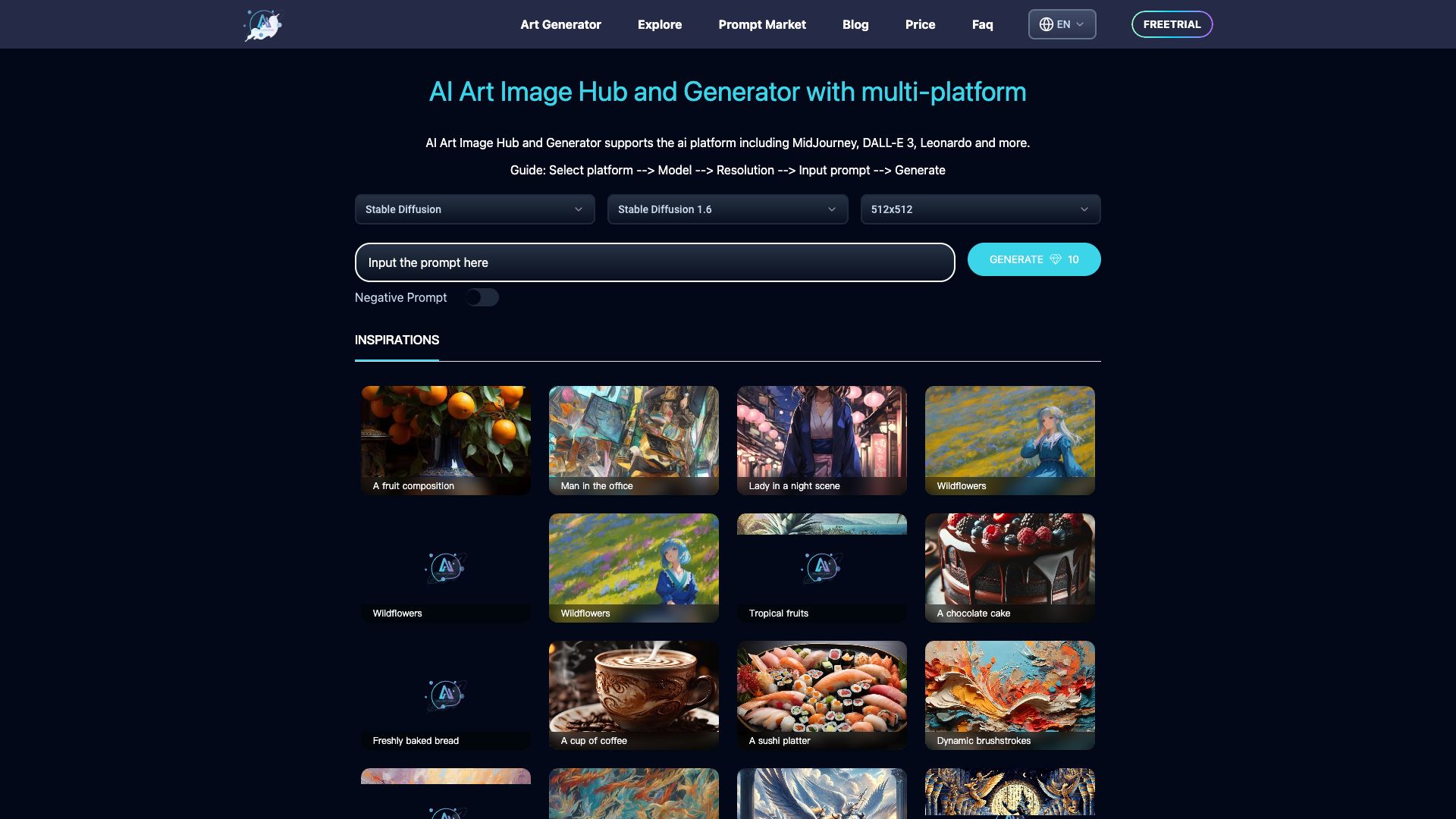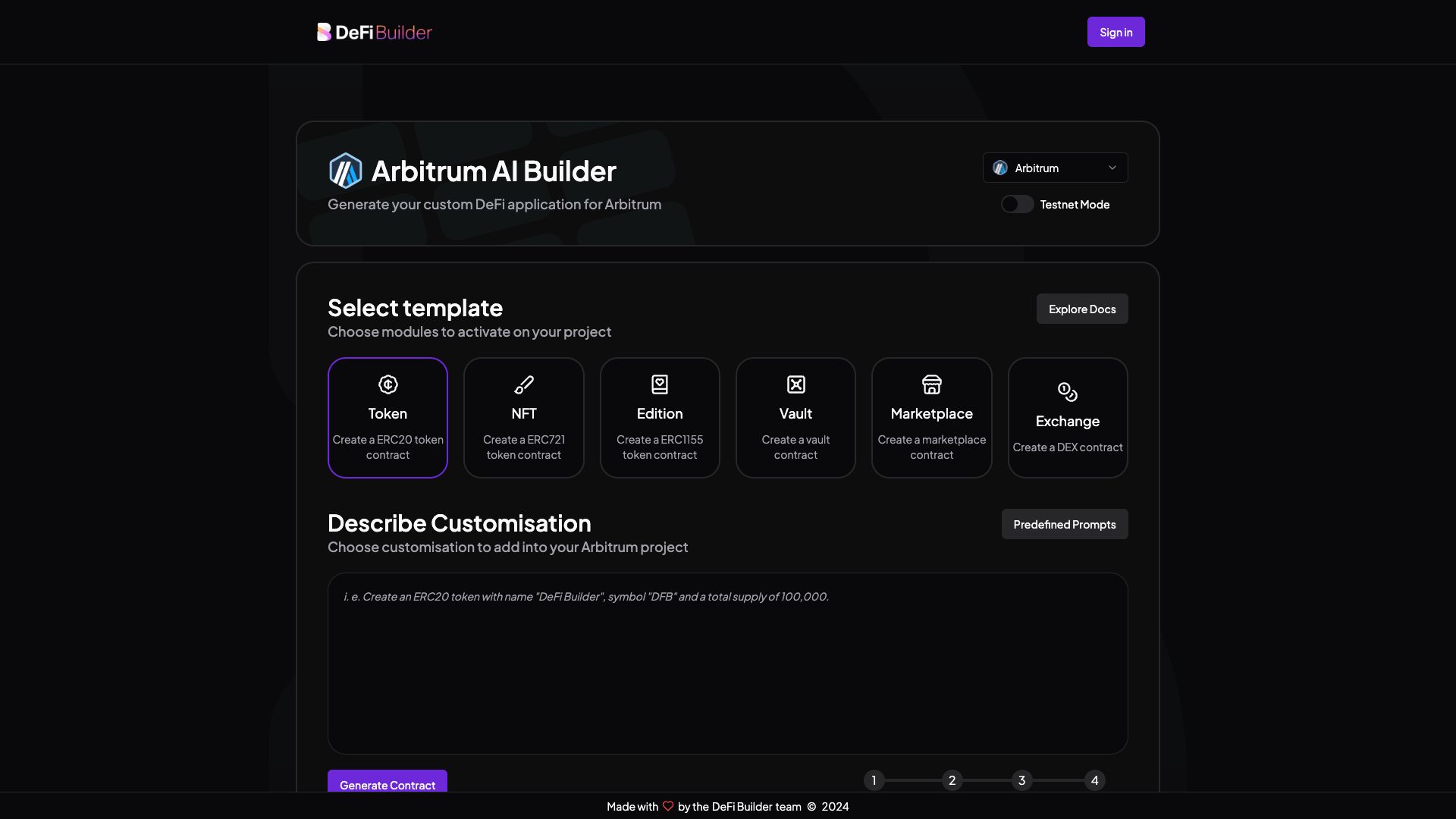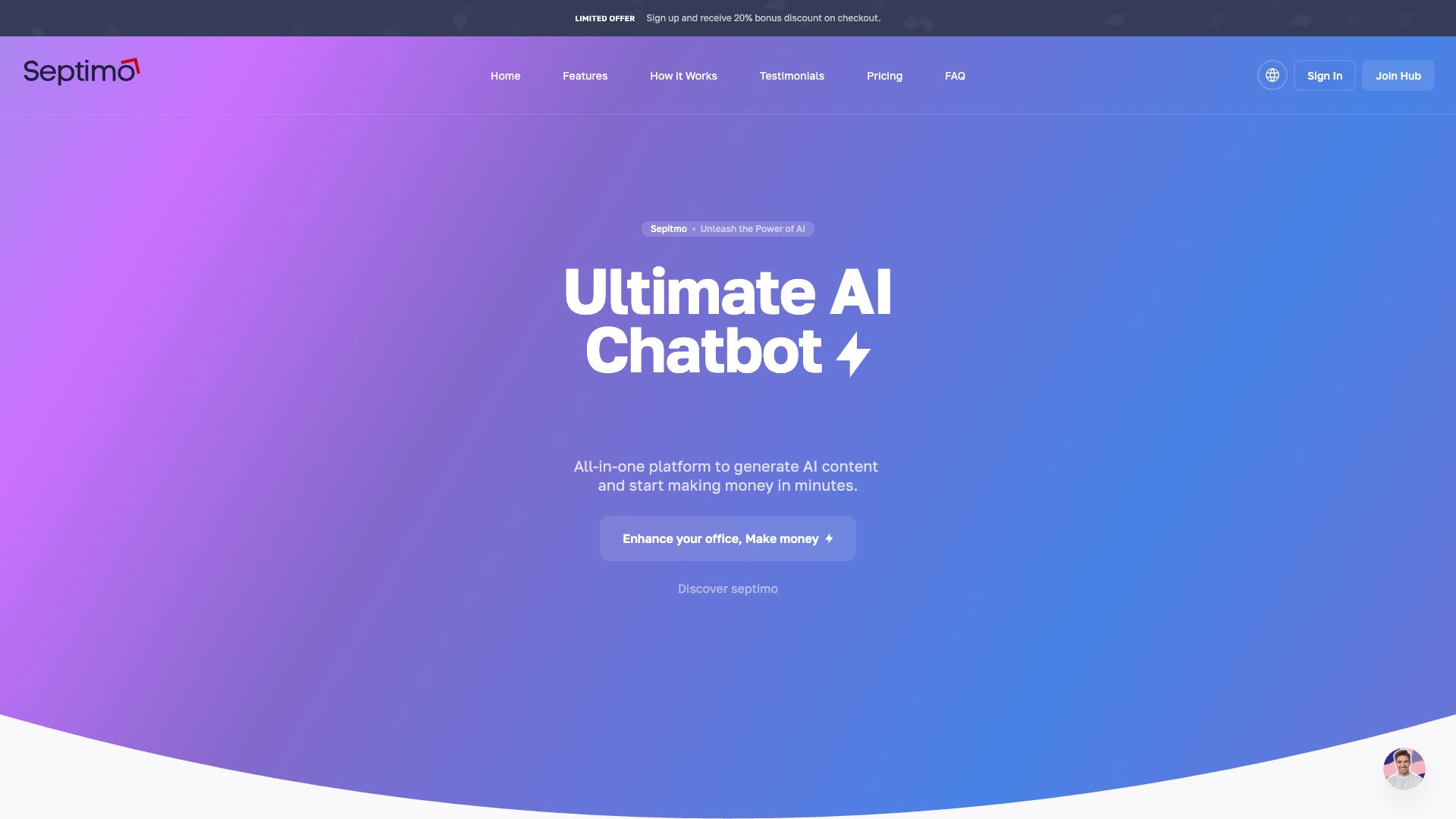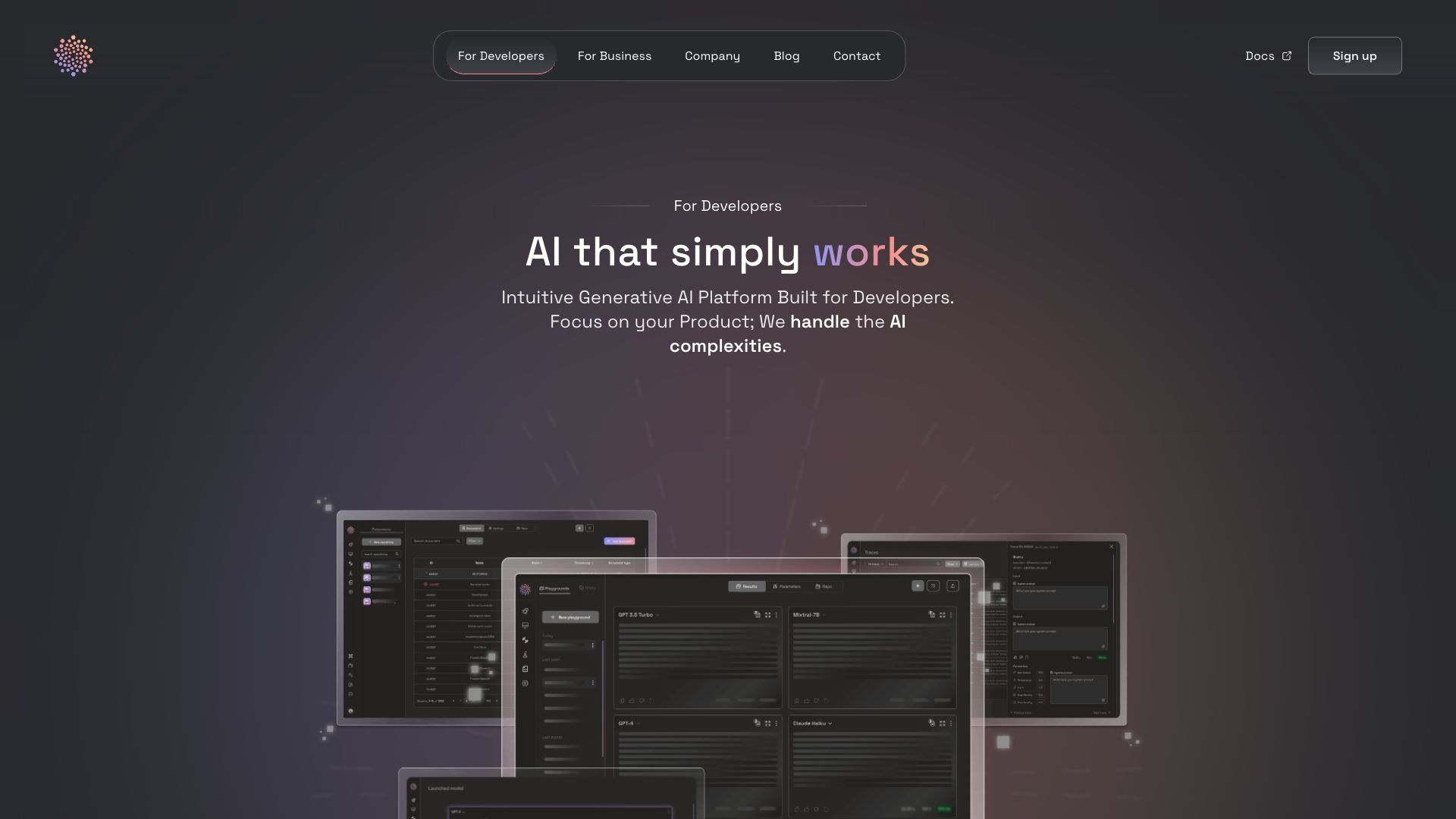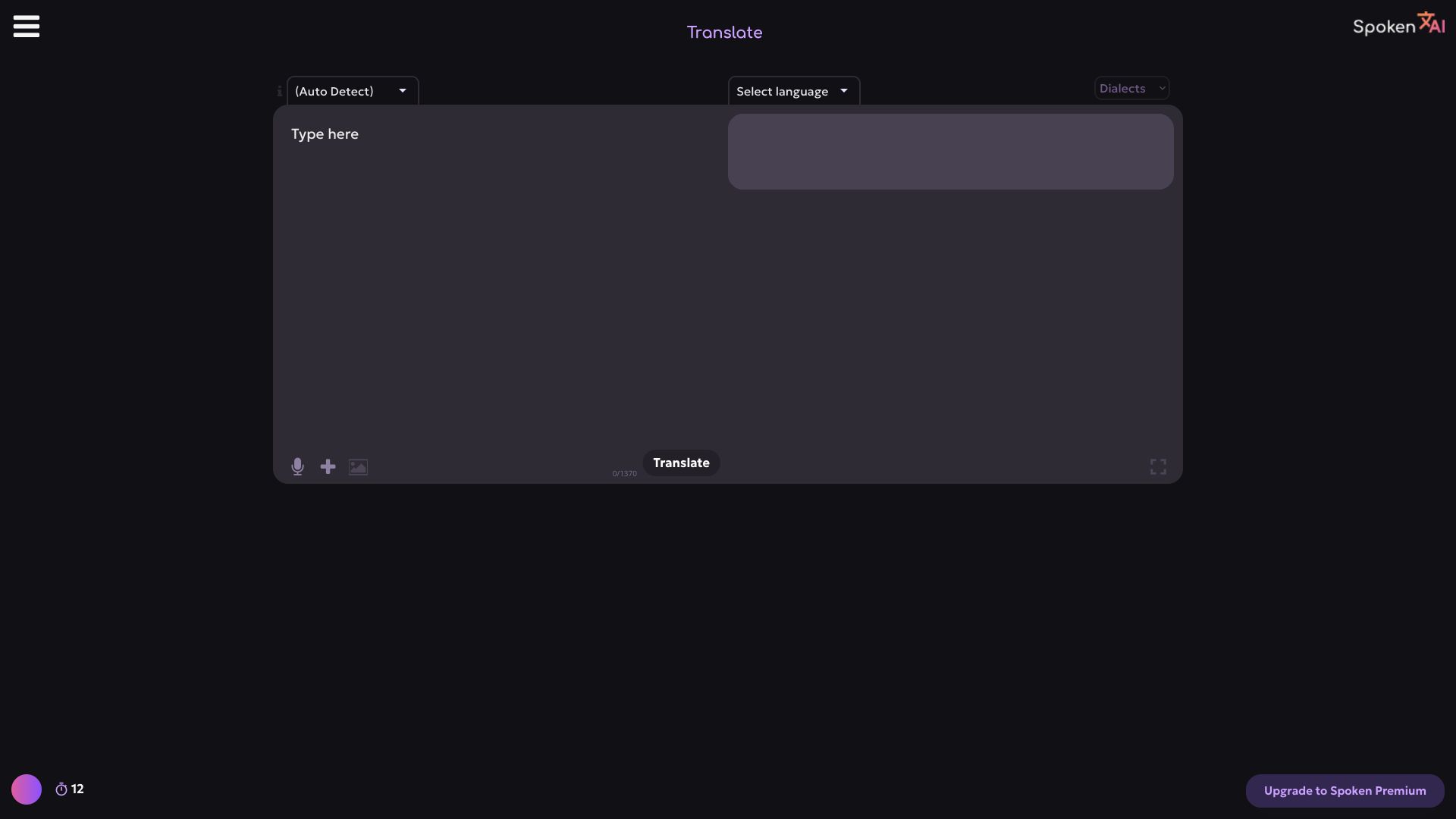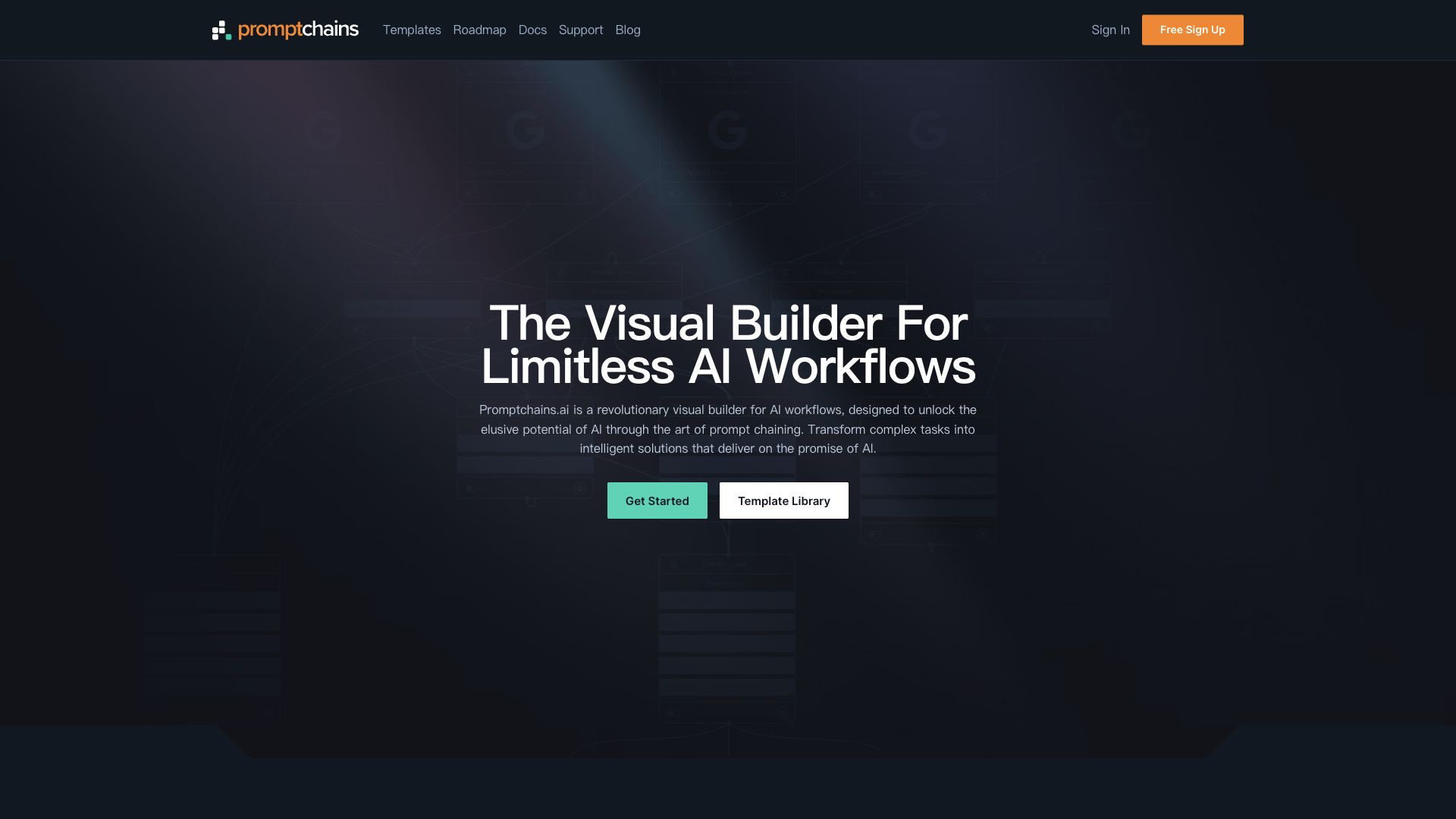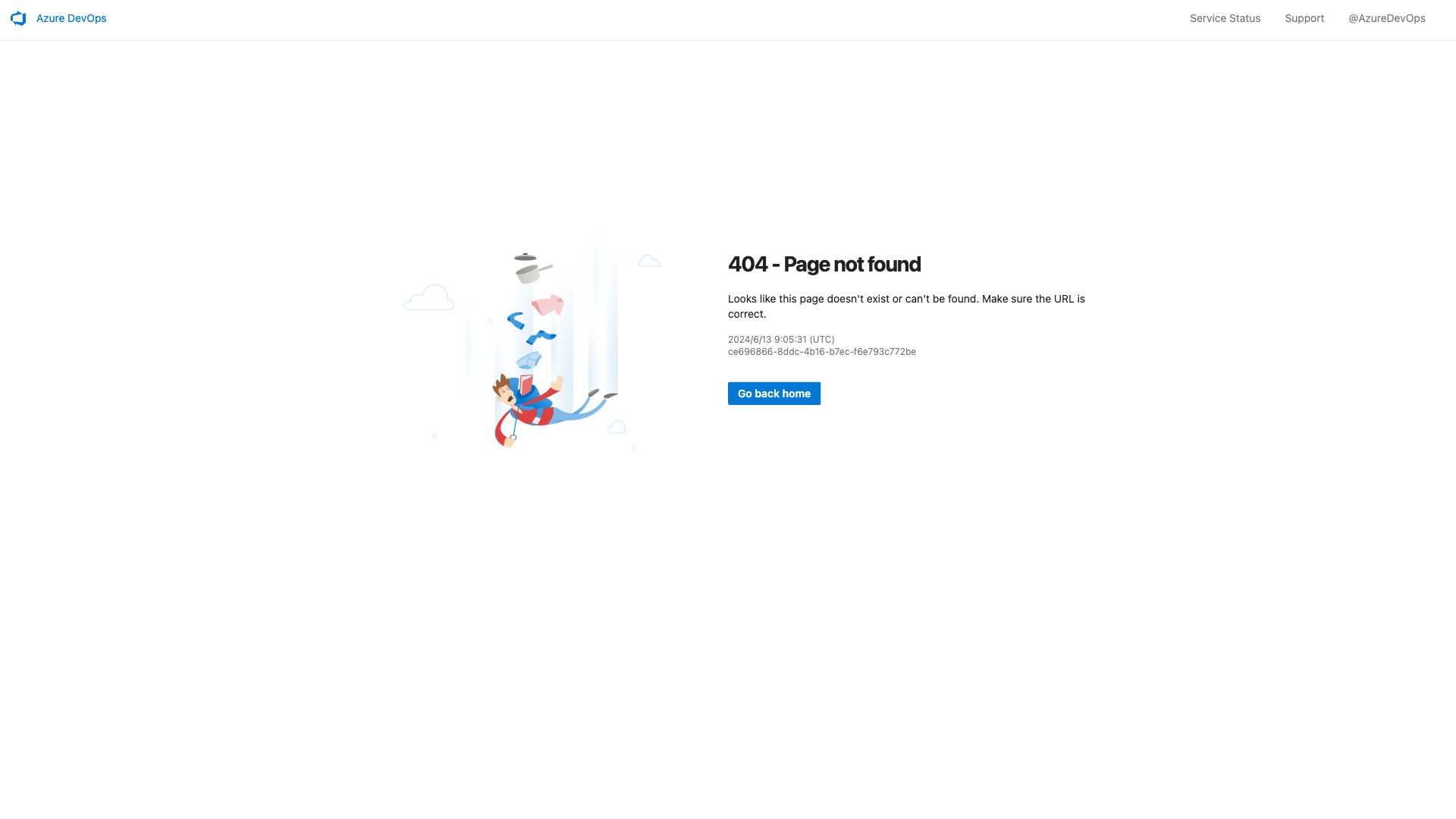Awesome AI Developer Tools Tools in 2024
Discover the awesome 20 AI tools for 2024 By Candytools
Connect the dots in the blockchain space with BlinkAI. Our platform integrates AI with blockchain technology to facilitate secure, intelligent transactions and smart contract management. Step into the future of decentralized AI with BlinkAI.
Kabir is a cybersecurity assistant that helps you secure your digital life.
Infrabase.ai is the directory for discovering AI infrastructure tools and services.
Octoparse VOC provides the AI-based professional voice of customer analysis and product review research for your e-commerce business.
Revolutionizing Developer Documentation with AI-Powered Precision
Effortlessly build new services, extend your existing applications with Amplication AI. Go from idea to production in four minutes.
Powered by cutting-edge AI technology, WeFIRE is a fully interactive personal finance copilot, providing personalized services 24/7.
phind alternative, ai search engine affordable for everyone
turing UI Kit is a structured app solution for your smart healthcare projects. Simplify patient information and design cohesive user interfaces!
A new debugging experience driven by Artificial Intelligence. Resolve issues with unprecedented speed and accuracy, using AI-powered suggestions on the root cause of errors and how to fix them.
A playground for deep learningexperimentation.
Turn yourself into comical clay character with our online clay filter. Photo to clay style filter. Share your funny clay photo on social media. Start now!
Get creative with ArtiverseHub's online ai art generator. Support multi-platform including DALLE(ChatGPT), Leonardo.ai, Stability.ai, and some more.
AI DeFi Builder
All-in-one platform to generate AI content and start making money in minutes.
Accelerating the advent of personalized LLMs.
Spoken AI Translate offers an advanced language translation API for businesses and developers. Get accurate, fast, and cost-effective translations for your applications. Free trial available.
PromptChains is a Python framework for building robust and scalable LLM applications. Simplify complex workflows, manage prompts effectively, and unlock the true potential of large language models.
Discover and download extensions for Visual Studio, Azure DevOps, Visual Studio Code, and Visual Studio for Mac. Enhance your development workflow with tools and integrations from Microsoft and the community.
More AI Tools Categories
What is AI Developer Tools?
AI Developer Tools: Building Blocks for Intelligent Applications
AI Developer Tools are software applications, libraries, and platforms designed to streamline the process of developing, training, and deploying artificial intelligence (AI) models. They empower developers, both seasoned and novice, to harness the power of AI without needing to be experts in the underlying mathematical complexities.
Here's a breakdown of what constitutes AI Developer Tools:
Core Components:
- Machine Learning Frameworks: These are the foundational libraries (e.g., TensorFlow, PyTorch, scikit-learn) that provide the building blocks for creating, training, and evaluating AI models. They offer pre-built algorithms, data manipulation tools, and computational optimization for efficient model development.
- Deep Learning Frameworks: Specialized for building complex neural networks, these frameworks (e.g., TensorFlow, Keras, PyTorch) offer high-level APIs for defining network architectures, training procedures, and deployment strategies, often with GPU acceleration for faster training.
- AI Platforms: Cloud-based platforms (e.g., Google AI Platform, Amazon SageMaker, Microsoft Azure Machine Learning) provide comprehensive environments for the entire AI development lifecycle. They offer pre-configured environments, data storage, model training infrastructure, deployment tools, and monitoring capabilities, allowing developers to focus on building the AI logic.
- Data Labeling and Annotation Tools: Essential for supervised learning tasks, these tools (e.g., Labelbox, Amazon Mechanical Turk) help prepare large datasets by adding labels and annotations to images, text, audio, and video, enabling AI models to learn patterns and make predictions.
- Model Optimization and Deployment Tools: These tools (e.g., TensorFlow Serving, TorchServe) streamline the process of converting trained AI models into deployable applications, optimizing them for performance, and managing their deployment on various platforms, from cloud servers to edge devices.
- AI-Specific Programming Languages: Languages like Python and R are widely used in AI development due to their extensive libraries and frameworks specifically designed for machine learning and data analysis.
Benefits of AI Developer Tools:
- Faster Development Cycles: Pre-built algorithms, streamlined workflows, and powerful infrastructure significantly reduce development time.
- Reduced Complexity: Abstraction of complex mathematical concepts makes AI development accessible to a wider audience, not just experts.
- Improved Model Performance: Optimized frameworks and tools allow developers to fine-tune models for greater accuracy and efficiency.
- Simplified Deployment: AI platforms and deployment tools ease the process of integrating AI models into various applications and systems.
- Collaboration and Community Support: Active communities and resources around popular AI tools provide valuable support and knowledge sharing.
Examples of AI Developer Tools in Action:
- Image Recognition: Building apps that can automatically categorize and tag images using deep learning models.
- Natural Language Processing (NLP): Developing chatbots, language translation tools, and sentiment analysis systems using NLP libraries.
- Predictive Analytics: Creating models to forecast future trends and outcomes in various industries, from finance to healthcare.
Choosing the Right Tools:
The selection of AI Developer Tools depends on the specific project requirements, including:
- Type of AI task (e.g., image classification, NLP, forecasting)
- Programming language preference
- Development budget and resources
- Deployment platform
AI Developer Tools are constantly evolving, with new frameworks, platforms, and libraries emerging to address the growing demands of the AI landscape. Staying abreast of these developments is crucial for developers seeking to leverage the latest advancements in AI technology.
